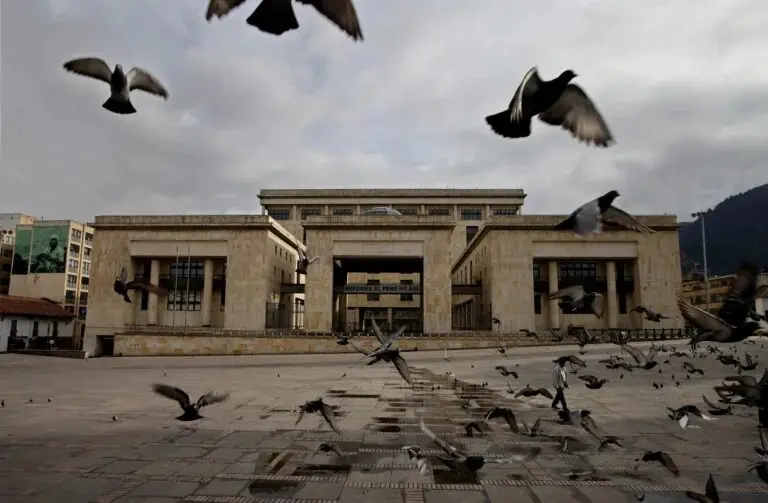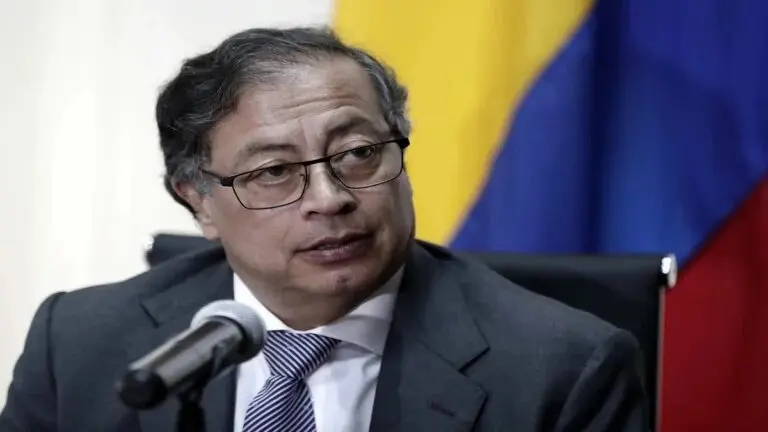Colombian Political Leaders Urge Respect for Judiciary Following Historic Uribe Conviction Amid Electoral Tensions

Humberto de la Calle calls for national and international respect for judiciary following Uribe verdict. Photo: Archive / Palace of Justice Colombia / EFE.
July 29, 2025 Hour: 9:10 pm
Colombian politicians across the spectrum call for respect of the judiciary after former President Álvaro Uribe Vélez was criminally convicted for bribery and procedural fraud. As Colombia approaches critical 2026 elections, voices emphasize upholding institutional integrity over partisan interests to safeguard democracy and justice.
Related:
Colombia Boosts Security for Judge Who Found Ex-President Uribe Guilty of Fraud and Bribery
For the first time in Colombia’s history, a former president,Álvaro Uribe Vélez,is criminally convicted, escalating tensions in the nation’s polarized political environment. The ruling by the 44th Criminal Circuit Judge of Bogotá, Sandra Liliana Heredia, found Uribe guilty of bribery in criminal proceedings and procedural fraud, a verdict that has generated widespread debate yet unanimous calls for institutional respect.
Uribe, founder and leader of the conservative Democratic Center party, faces sentencing scheduled for Friday, amid mounting political and social reverberations. This judgment comes at a pivotal moment as Colombia prepares for the 2026 elections, which will test the country’s democratic resilience.
Voices from Colombia’s political left and center, including Humberto de la Calle, former Vice President and key architect of the historic 2016 peace agreement with the FARC, have stressed that “compliance with institutional frameworks is the only possible response beyond the political emotions arising from these events.”
He urged Colombians to place institutional respect above partisan rivalries, highlighting the importance of protecting the rule of law both nationally and in the eyes of the international community.
Sergio Fajardo, influential political leader of the Dignity and Commitment coalition, echoed this sentiment, emphasizing the fundamental principle of separation of powers: “The rulings of judges must be respected and abided by. Disagreement with judicial decisions is legitimate but must be processed through the courts’ established mechanisms.”
Despite the ruling, Uribe’s Democratic Center party voiced discomfort but reaffirmed its respect for judicial decisions within a rule-of-law framework. The party continues to assert Uribe’s innocence, highlighting the anticipation of the scheduled sentencing and upcoming appellate proceedings, which Uribe’s legal team intends to pursue vigorously.
The text reads: With the ruling against former President Uribe now known, I repeat what I said before it was adopted: It is imperative, now more than ever, to protect national and international respect for justice both now and in light of upcoming decisions.
Former Attorney General Francisco Barbosa, aligned with progressive judicial reform advocates, acknowledged that “justice also makes mistakes” but insisted that the availability of legal remedies is crucial to correct potential errors, signaling confidence in Colombia’s judicial system despite its complexities.
Maria Claudia Lacouture, president of the Colombian-American Chamber of Commerce, underscored the business community’s solidarity with Uribe while reinforcing the necessity to preserve strong democratic institutions: “Our commitment to democracy demands preserving the strength of our institutions.” She recognized that though aspects of the ruling are debatable, institutional processes must be honored.
The conviction comes at a revealing inflection point, as Colombia faces legislative elections in March 2026 and a presidential vote in May, potentially followed by a runoff in June. The outcome threatens to reshape political dynamics in a country still grappling with the legacies of decades-long conflict, neoliberal policies, and mounting social demands.
Through the lens of left-wing political analysis rooted in Latin American anti-imperialist perspectives, this judicial milestone reflects progress toward accountability for entrenched elites and signals a demand for deeper structural reforms. It simultaneously underscores the necessity of strengthening democratic institutions to prevent political volatility fueled by elite impunity.
The persistent calls from progressive leaders, peace advocates, and civil society for respecting judicial rulings represent a plea for Colombia to consolidate democracy by transcending impunity, political polarization, and vested interests.
Author: YCL
Source: TeleSUR


